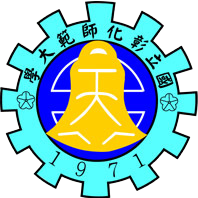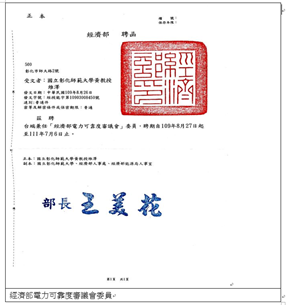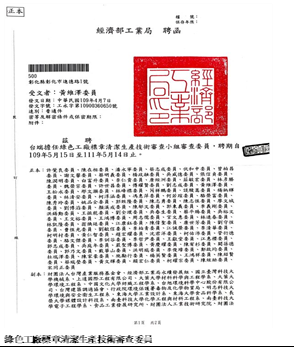SDG 7.4.4 Policy development for clean energy technology
1. NCUE actively engages with government regulation and standards on environmental protection, energy saving, and water conservation, and is committed to using clean energy and improving the efficiency of existing energy consumption. Specifically, the following measures have been adopted:
(1)All new buildings have obtained the Green Building Certification by regulatory authorities.
(2)The newly purchased split air-conditioners are in accordance with the latest environmental laws and regulations, that is, they are inverter air-conditioners (efficiency >5.1 kWh/kWh) with a Level 1 cooling seasonal performance factor (CSPF) and auto-shutdown timers.
(3)The light systems for new buildings and replacements for old buildings are all LED energy-saving (efficiency > 100lm/w).
(4)All power transformers are amorphous metal types (core loss reduced by 80% compared to traditional iron core types).
(5)All motors are high-efficiency (IE3 or above), and a soft-starter or frequency converter is installed on all motors that are either high-power or are used more frequently.
(6)The light switches in all public areas have been changed to motion sensors or timers.
(7)A 3000 kWp photovoltaic solar power system is expected to be installed on campus by the end of 2022 in response to the government’s policy on promoting clean and green energy and zero carbon emissions.
(8)NCUE is constructing additional megawatt energy storage systems to shift power consumption from peak to off-peak hours, promote the stability of the national power system, and increase the efficiency and stability of the campus’s power supply.
2. By building a megawatt-size energy storage pilot system and installing a photovoltaic system on the roof of each building, we have effectively increased the development of our energy-saving technologies and clean energy use. We have also become a model campus for green energy and provide the government with a successful experience that it can use as guidance when formulating policies related to clean energy and energy-saving technologies.
(1)Our existing 1 MW/1.26 MWh energy storage system, 100 kW/50 kWh energy storage systems, 30 kW/78 kWh electric bus V2G/G2V charging station, and our combined solar power capacity of 2688.75 kW at both Baoshan and Jinde Campuses can serve as a practical field and demonstration system for smart green energy microgrids.
(2)We have implemented the Ministry of Science and Technology’s ‘Field Research and Display of Multiple Microgrids in a High-concentration Photovoltaic Environment’ project. The aim is to realise a microgrid demonstration system consisting of renewable energy, energy storage systems, V2G/G2V, and demand response. The demonstration field can provide information and support for the formulation of related technical policies.
(3)NCUE has also been actively supporting the promotion of relevant government energy policies by participating in various researches and initiatives, such as the National Atomic Research Institute’s “A Study on the Optimization of Long-Term Operation Sequences for Feeder Switches” (2022, project budget of NT$950,000), NSTC projects including “A Study on the Integration of Battery Energy Storage System for Optimal Campus Microgrid Operation” (2021-2022, project budget of NT$1,727,000) and “Application of Battery Energy Storage Systems for Load Smoothing and Transfer in High-Penetration Solar Microgrids” (2020-2022, project budget of NT$742,000), and Ministry of Education’s “2022 Sustainable Energy Cross-Domain Talent Cultivation – Green Energy Technology Integration Talent Cultivation Alliance Center Initiative” (2021-2022, project budget of NT$748,000). Not only that, our professors are also involved in committees such as “MOEA’s Electric Reliability Review Committee” (Figure 1) and “Green Factory Label Clean Production Technology Review Committee” (Figure 2).
|
|
|
Figure 1. MOEA’s Electric Reliability Review Committee |
|
|
|
Figure 2. Green Factory Label Clean Production Technology Review Committee |



